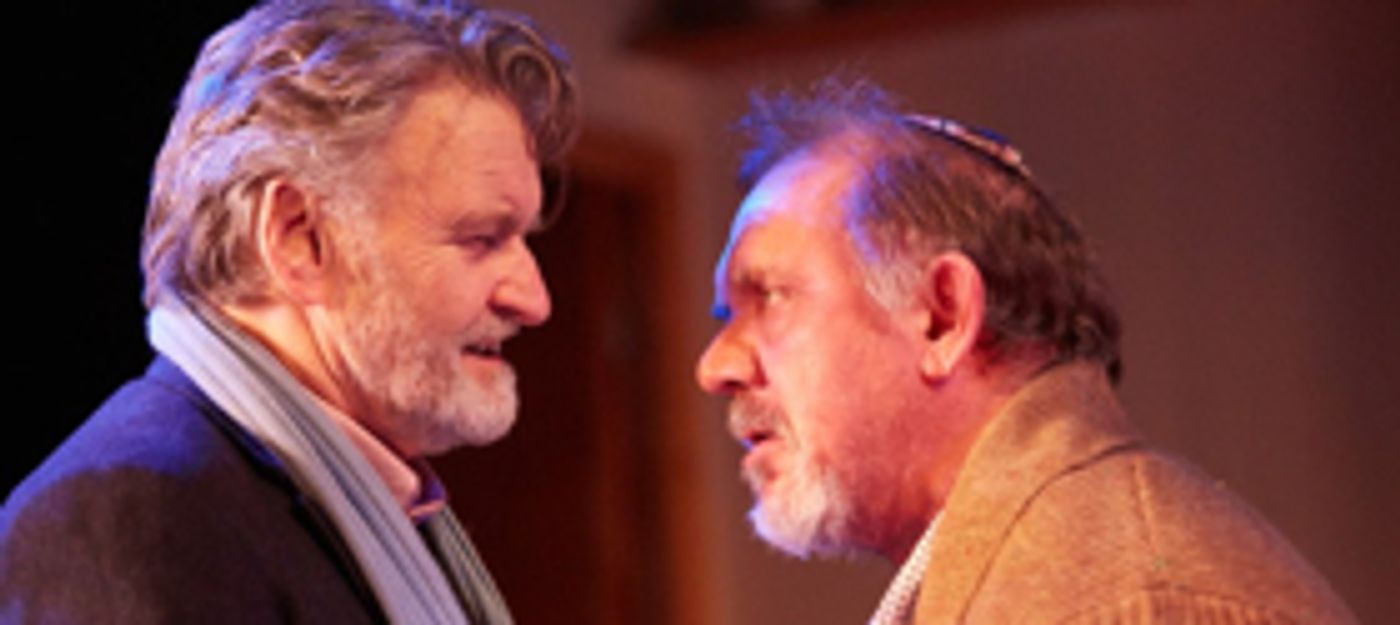Review: ROSENBAUM'S RESCUE, Park Theatre

![]() It makes you think, this play, and many thoughts went through my mind as its personal and political dramas played out. Some will find echoes of the "Fake News" crisis convulsing British and American politics, others of revisionist historians debunking myths for a variety of motives, still others of long-settled narratives controversially reinterpreted through feminist or post-colonial sensibilities. Me? I thought of this Guardian ad from 33 years ago. Much depends on your point of view...
It makes you think, this play, and many thoughts went through my mind as its personal and political dramas played out. Some will find echoes of the "Fake News" crisis convulsing British and American politics, others of revisionist historians debunking myths for a variety of motives, still others of long-settled narratives controversially reinterpreted through feminist or post-colonial sensibilities. Me? I thought of this Guardian ad from 33 years ago. Much depends on your point of view...
Abraham is an observant Jew living in rural Denmark with his Swedish wife, Sara. They welcome an old family friend, Lars, into their home, but he' (and his daughter, Eva) are soon trapped by snowfall. The tension bubbling between Abe and radical, aetheist academic, Lars, erupts into anger and long-buried secrets, within the family and within the war, spew forth.
How did so many Danish Jews escape the transports to the death camps, spirited across the sea to Sweden from under the noses of the occupying Nazis? What is it that drives the deep-seated antipathy between Abe and Lars? Why is Henrik, Abe and Sara's son, absent - again? Why did Eva choose to be German and what else is going on in her life?
Before the end, some, if not all, of these questions are answered and much more has been debated in A. Bodin Saphir's meaty script. He has given us four rounded characters - we all know people like these - and, if there are rather more long stretches of exposition than would ideally be the case, at least it gets us to some very interesting places. Whether one needs quite so much on the menu, the focus oscillating from family trauma to wartime puzzles to facts vs faith philosophising, is moot, but an excess of ambition is surely better than a poverty thereof.
The cast are all super, led by David Bamber as the patriarchal Abe, a man holding on to certainties in a changing world. Abe could easily be an unsympathetic figure - a "gammon" in the argot of 2019 - but Bamber gives him a decency and fragility that stops well short of such a stereotype.
Neil McCaul captures the egoism of the man whose commitment is to the realm of principles and ideas rather than the messy world of uncertainties and compromises that human beings create. Perhaps McCaul is too good at making his character sympathetic, because his late stab at Abe felt a little too much from a man we didn't quite like, but didn't despise either.
The women tend to play off the men, but are still (thankfully) rounded out and not merely foils for the testosterone-fuelled clashes of male egos. Julia Swift gives Sara a long-suffering mien, but also a real melancholy, the reason for which only becomes apparent late in the play. Dorothea Myer-Bennett does a good job with Eva, but she's mainly there to chip away at the men's excesses, her secret rather tacked on and telegraphed early.
Rosenbaum's Rescue is not a great play - its scale of ambition makes that adjective very hard to achieve - but it's a intelligent theatre, skilfully written, acted and directed (by Kate Fahy) concerning itself with an oft-forgotten fragment of The Shoah and with much else besides. On the stage, it's overly constrained, but there's a film here - the scale of the writer's ambition better matched by the freedom that medium provides.
Rosenbaum's Rescue continues at the Park Theatre until 9 February.
Reader Reviews
Videos

